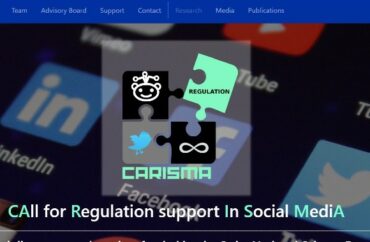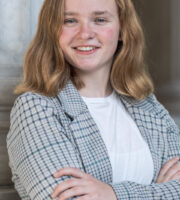
Free speech advocate raises concerns about potential censorship
A social media project at the University of Southern California is raising concerns about potential censorship.
Researchers at the USC Information Sciences Institute are working with the CAll for Regulation support In Social MediA to track “hate speech and disinformation” and “produce effective solutions for the mitigation of online harm,” according to CARISMA’s website.
CARISMA is funded by the Swiss National Science Foundation.
Luca Luceri, one of the USC researchers, told the Daily Trojan, USC’s student newspaper, the center is working on a simulator to help social media companies explore the best ways to monitor online content.
“We are building this big simulator with … several thousands of agents that try to replicate humans and human’s interaction,” Luceri said. “We want to see what happens if we limit the interaction of good legitimate users with these bad actors.”
The College Fix contacted Luceri several times over the past month. Luceri initially responded but did not answer The Fix’s questions or follow-up emails asking for more information about the research and free speech considerations.
The Fix also contacted the USC media department several times over the past month for comment on the research, but the office did not respond to The Fix’s questions.
Luceri told the Trojan he is mindful of content moderation and freedom of speech.
“If we moderate a hateful comment or a hateful post, this goes against the freedom of speech,” Luceri said. “But on the other side, we need also to take into account that these spaces require some moderation. So if we allow everybody [to speak] in a certain way — violent, toxic or hateful … We needed a way to somehow polish these spaces.”
But Michael Rectenwald, author, free speech advocate, and former professor at NYU, expressed concerns about the research in a recent email to The Fix.
“USC’s CARISMA project represents yet another example of university researchers attempting to control and censor speech and shut down dissent on social media platforms,” according to Rectenwald, who wrote a book about Big Tech power.
He said projects like this typically lean left and target “rightwing” content “largely because ‘hate speech’ is defined strictly in terms of protecting supposedly beleaguered minority groups that the left claims to champion.”
“Leftists control the institutions of higher education and the media,” Rectenwald told The Fix.
He also said criticisms of minority groups like racial groups and “LGBTQIA++” tend to be intensely disliked and deemed hate speech. Meanwhile, attacks on white, straight males are exempted by the algorithms, he said.
Rectenwald said he is concerned about the foreign funding because “the research is likely modeled on the EU’s Digital Services Act, which is a prohibitive law that flies in the face of the free speech values cherished in the U.S.”
MORE: Northwestern lab envisions ‘ethical internet’ without capitalism
If implemented, CARISMA’s goals could stifle free speech, he said.
“In the hands of the state in conjunction with its social media proxies, such ‘content moderation’ will constitute First Amendment violations,” Rectenwald said.
So far this year, the USC ISI researchers have published at least five papers about social media and “misinformation.” One in partnership with CARISMA is titled, “Tracking Fringe and Coordinated Activity on Twitter Leading Up To the US Capitol Attack.”
Luceri and other researchers found “social media platforms offer fertile ground for the widespread proliferation of conspiracies during major societal events, which can potentially lead to offline coordinated actions and organized violence,” according to the study abstract.
CARISMA lists four additional studies on its website, including “Using Science To Guide Social Media Regulation” and “Friction Interventions to Curb the Spread of Misinformation on Social Media.” Both were published in 2023.
The goal of CARISMA is “to establish a clear, traceable, and replicable methodology to craft policy recommendations that effectively mitigate the harms of social media actors responsible for abusive and illicit behaviors,” according to its website.
Researchers from Indiana University, University of Zurich in Switzerland and University of Bologna in Italy also are listed as CARISMA team members on its website.
Its advisory board includes prominent censors including Yoel Roth, the former “trust and safety” leader at Twitter who insisted the company ban President Donald Trump. In his 2016 doctoral thesis, Roth argued in favor of gay teens being on hookup apps like Grindr.
Renee DiResta of the Stanford Internet Observatory is also a board member. The group has come under scrutiny for working closely with federal officials to censor information ahead of the 2020 election.
MORE: DOJ funds $953K university project on ‘dis/misinformation campaigns’
IMAGE: CAll for Regulation support In Social MediA
Like The College Fix on Facebook / Follow us on Twitter






Please join the conversation about our stories on Facebook, Twitter, Instagram, Reddit, MeWe, Rumble, Gab, Minds and Gettr.